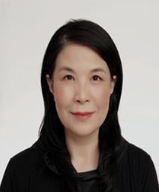Intelligent Edge Sensing and Distributed Cognition Are Transforming the Future of Smart World
Presented by: Dr. Runhe Huang
Join us in exploring how intelligent edge sensing and distributed cognition are transforming smart worlds
Intelligent edge sensing and distributed cognition are reshaping the architecture of future smart worlds. By enabling real-time perception, processing, and decision-making at the network edge, intelligent sensing technologies reduce latency, enhance privacy, and support context-aware adaptation. At the same time, distributed cognition, defined as the integration of sensing, learning, memory, and reasoning across decentralized systems, provides a powerful framework for creating scalable and resilient intelligent environments. This talk will explore key advances in edge sensing frameworks, lightweight AI models, and associative memory mechanisms that are driving this transformation. Real-world applications in intelligent city transportation, elderly healthcare, and sparse mobile crowdsensing will be presented, highlighting how intelligent edge sensing and distributed cognition enable more responsive, efficient, and human-centric systems. Finally, future directions toward energy-efficient cognitive ecosystems and ethical considerations in distributed intelligence will also be discussed.

Dr. Runhe Huang
Hosei University, Japan
Biography
Runhe Huang received her B.Sc. in Electronics Technology from the National University of Defense Technology, China, in 1982, and her Ph.D. in Computer Science and Mathematics from the University of the West of England, UK, in 1993. She is a full professor in the Faculty of Computer and Information Sciences at Hosei University, Japan, where she has held the position since 2003. She served as the head of the Department of Computer Science from 2008 to 2010 and currently holds the position of Deputy Director at Hosei University Library. She is a senior member of IEEE and ACM, and served as the IEEE CIS SWTC chair and vice chair from 2019 to 2022. Her research fields include Artificial Intelligence, Ubiquitous Intelligence Computing, Machine Intelligence, Cognitive Computing, and Knowledge Modeling. She has authored more than 200 academic papers.
IEEE SWC 2025 Colocated Conferences
IEEE ScalCom 2025
The 25th IEEE International Conference on Scalable Computing and Communications
ViewSponsors


